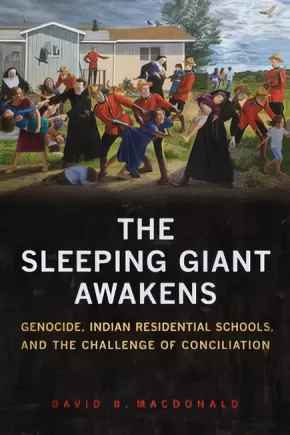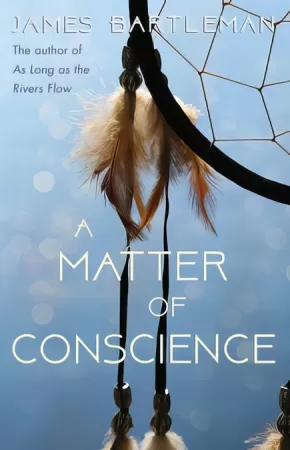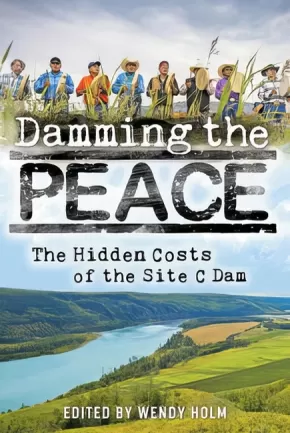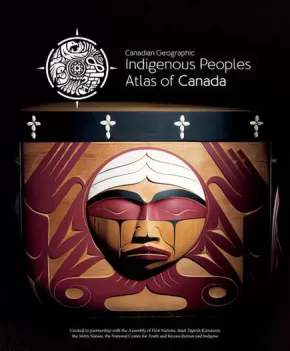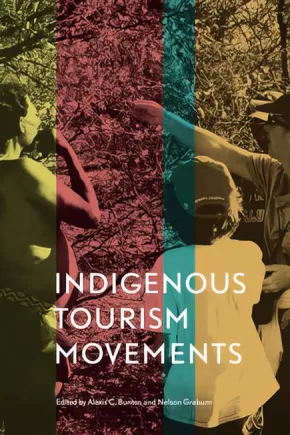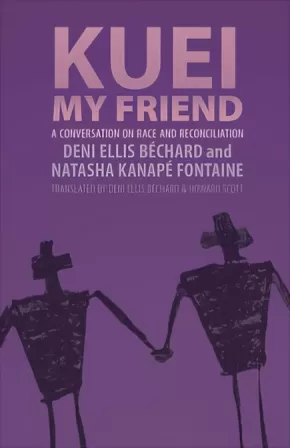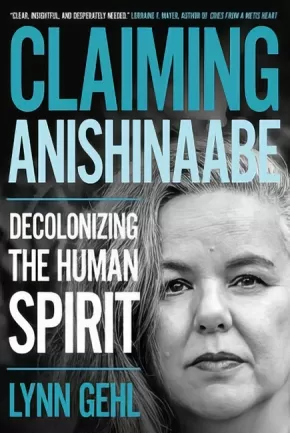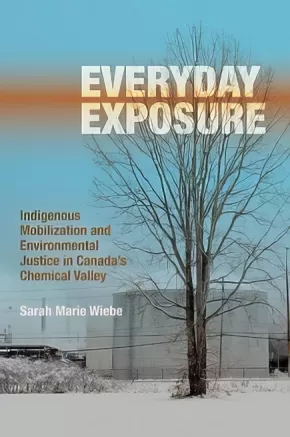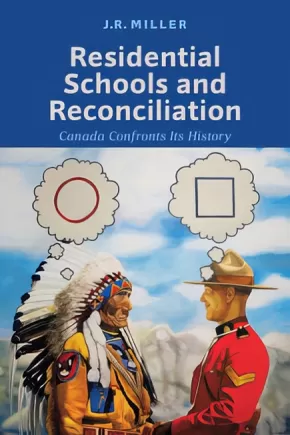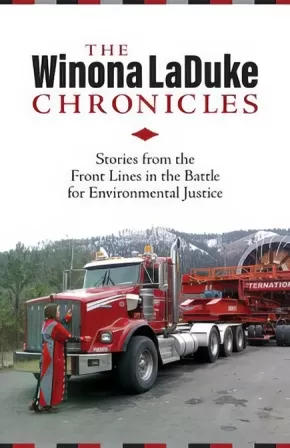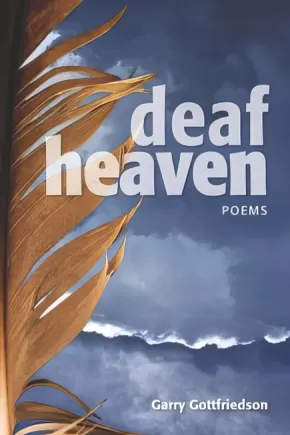Indigenous Contemporary Issues
Synopsis:
Confronting the truths of Canada’s Indian Residential School system has been likened to waking a sleeping giant. In this book, David B. MacDonald uses genocide as an analytical tool to better understand Canada’s past and present relationships between settlers and Indigenous peoples. Starting with a discussion of how genocide is defined in domestic and international law, the book applies the concept to the forced transfer of Indigenous children to residential schools and the "Sixties Scoop," in which Indigenous children were taken from their communities and placed in foster homes or adopted.
Based on archival research and extensive interviews with residential school survivors, officials at the Truth and Reconciliation Commission of Canada, and others, The Sleeping Giant Awakens offers a unique and timely perspective on the prospects for conciliation after genocide, exploring how moving forward together is difficult in a context where many settlers know little of the residential schools and the ongoing legacies of colonization, and need to have a better conception of Indigenous rights. It offers a detailed analysis of how the TRC approached genocide in its deliberations and in the Final Report.
Crucially, MacDonald engages critics who argue that the term genocide impedes understanding of the IRS system and imperils prospects for conciliation. By contrast, this book sees genocide recognition as an important basis for meaningful discussions of how to engage Indigenous-settler relations in respectful and proactive ways.
Additional Information
224 pages | 6.00" x 9.00"
Synopsis:
A novel of love and betrayal dealing with the biggest issues facing Canada’s Indigenous peoples today.
In the summer of 1972, a float plane carrying a team of child welfare officials lands on a river flowing through the Yellow Dog Indian reserve. Their mission is to seize the twin babies of an Indigenous couple as part of an illegal scheme cooked up by the federal government to adopt out tens of thousands of Native children to white families. The baby girl, Brenda, is adopted and raised by a white family in Orillia.
Meanwhile, that same summer, a baby boy named Greg is born to a white middle-class family. At the age of eighteen, Greg leaves home for the first time to earn money to help pay for his university expenses. He drinks heavily and becomes embroiled in the murder of a female student from a residential school.
The destinies of Brenda and Greg intersect in this novel of passion, confronting the murder and disappearance of Indigenous women and the infamous Sixties Scoop.
Reviews
"James Bartleman, a First Nation person himself, writes movingly … about the tragic reality of misogynistic racism and violence against Indigenous women and girls." — Sharon Stinson Henry, Chief of Chippewas of Rama First Nation
Forces us to confront uncomfortable truths as we seek a path to reconciliation. — Alan Bowker, author of A Time Such as There Never Was Before
Bartleman’s strength as a writer is his compassion. He respects each of his characters and sets the stage for real-world discussions of Canada’s past, present, and future. — Publishers Weekly
Educator Information
A Reader's Guide includes discussion of Sixties Scoop and the Truth and Reconciliation Commission.
The Candian Indigenous Books for Schools list recommends this resource for Grades 10-12 English Language Arts.
Caution: Thi book could trigger some readers because of disturbing topics.
Additional Information
272 pages | 5.50" x 8.50"
Synopsis:
Every single year in Canada, one-third of all deaths among Indigenous youth are due to suicide. Studies indicate youth between the ages of ten and nineteen, living on reserve, are five to six times more likely to commit suicide than their peers in the rest of the population. Suicide is a new behaviour for First Nations people. There is no record of any suicide epidemics prior to the establishment of the 130 residential schools across Canada.
Bestselling and award-winning author Tanya Talaga argues that the aftershocks of cultural genocide have resulted in a disturbing rise in youth suicides in Indigenous communities in Canada and beyond. She examinees the tragic reality of children feeling so hopeless they want to die, of kids perishing in clusters, forming suicide pacts, or becoming romanced by the notion of dying — a phenomenon that experts call “suicidal ideation.” She also looks at the rising global crisis, as evidenced by the high suicide rates among the Inuit of Greenland and Aboriginal youth in Australia. Finally, she documents suicide prevention strategies in Nunavut, Seabird Island, and Greenland; Facebook’s development of AI software to actively link kids in crisis with mental health providers; and the push by First Nations leadership in Northern Ontario for a new national health strategy that could ultimately lead communities towards healing from the pain of suicide.
Based on her Atkinson Fellowship in Public Policy series, Tanya Talaga’s 2018 Massey Lectures is a powerful call for action and justice for Indigenous communities and youth.
Educator Information
Curriculum Connections: Indigenous Studies, History, Humanities and Social Sciences, Health
Additional Information
320 pages | 5.00" x 8.00"
Synopsis:
Since the 1970s, the Site C Dam in northeastern British Columbia's Peace River Valley has been touted by B.C. Hydro and successive governments as necessary to meet the province's increasing energy needs. With its enormous $10 billion price tag, the dam would be the largest public works project in BC history. It would be the third dam on the Peace River, and destroy traditional unceded territory belonging to Treaty 8 First Nations.
Following the last provincial election, the newly appointed NDP government called for a review of the project, but work on the dam continues. This comes after protests by aboriginal groups and landowners, several lawsuits against the government, and federal government intervention to let the dam go ahead. More recently, there has been a call from a United Nations panel to review how the dam will affect Indigenous land.
This book presents the independent voices of citizen experts describing every important impact of the dam, including:
- Sustainable energy expert Guy Dauncey on future energy demand, and whether there is likely to be a need for the dam's electricity
- An interview with aboriginal activist Helen Knott on the dam's assault on traditional lands and culture, in particular Indigenous women
- Agrologist Wendy Holm on the farm land impact — prime horticulture land important to food security and nutrition
- Family physician Warren Bell on the effect that loss of traditional way of life and connection to the land has had on the health of aboriginal people
- Wildlife biologist Brian Churchill with forty years' experience of studying its land and wildlife
- Former environmental minister Joan Sawicki on government cover-ups and smoking guns
- Energy industry watchdog Andrew Nikiforuk on the links between dams, fracking and earthquakes
- Award-winning broadcaster Rafe Mair on how party politics corrupts political leadership, and the role of activism and civil disobedience in shaping government decision-making
- David Schindler, one of the world's foremost water ecologists, explains the role dams like Site C will play in Canada's climate change strategy
- Joyce Nelson connects the dots between the Site C dam and continental water sharing plans
Reviews
"Wendy Holm brings another perspective to the case against Site C, that of the production of crops." — Nelson Star, January 2018
"A massive, $10 billion hydroelectric dam project on British Columbia’s Peace River could threaten the First Nations peoples who live nearby. This volume dives deep into the potential impacts and decades of governmental cover-ups related to this long-planned project."— John R. Platt, The Revelator, April 2018
"This book provides an organized and rigorous “how to” guide on the intellectual and fact-based opposition to Site C, and in doing this becomes a great model for a book on any long-term protest. Its ambition is to inform on the subject from every possible angle, keeping the Peace River, the region and its people in mind, rather than the expediency of the business and government angle, which is usually given at least equal weight by the mainstream media." — Cathryn Atkinson, Rabble, June 2018
"There is an "elephant in the room" — not the huge white elephant that you see at No-Site C rallies. This elephant is dark and invisible. The government does not talk about it ... No. This elephant is rather more sinister. Wendy Holm confronts it and exposes it. It's about exporting water."— John Gellard, The Ormsby Review, August 2018
"Damming the Peace is an accessible, thoughtful and informative collection of essays that reveal the grave environmental, human and economic costs if the Site C dam is built."— Tim Pelzer, People's Voice, October 2018
Educator Information
Includes Indigenous content/perspectives and an Interview with Indigenous activist Helen Knott.
Additional Information
272 pages | 6.00" x 9.00"
Synopsis:
Indigenous perspectives much older than the nation itself shared through maps, artwork, history and culture.
The Royal Canadian Geographical Society, in partnership with Canada's national Indigenous organizations, has created a groundbreaking four-volume atlas that shares the experiences, perspectives, and histories of First Nations, Inuit and Métis peoples. It's an ambitious and unprecedented project inspired by the Truth and Reconciliation Commission's Calls to Action. Exploring themes of language, demographics, economy, environment and culture, with in-depth coverage of treaties and residential schools, these are stories of Canada's Indigenous Peoples, told in detailed maps and rich narratives.
This extraordinary project offers Canada a step on the path toward understanding.
The volumes contain more than 48 pages of reference maps, content from more than 50 Indigenous writers; hundreds of historical and contemporary photographs and a glossary of Indigenous terms, timelines, map of Indigenous languages, and frequently asked questions. All packaged together in a beautifully designed protective slipcase.
Educator Information
Recommended for ages 13+.
The Indigenous Peoples Atlas of Canada includes a four volume print atlas, an online atlas, an app, and more!
Additional Information
322 pages | 10.50" x 12.87"
Synopsis:
Cultural tourism is frequently marketed as an economic panacea for communities whose traditional ways of life have been compromised by the dominant societies by which they have been colonized. Indigenous communities in particular are responding to these opportunities in innovative ways that set them apart from their non-Indigenous predecessors and competitors.
Indigenous Tourism Movements explores Indigenous identity using “movement” as a metaphor, drawing on case studies from throughout the world including Botswana, Canada, Chile, Panama, Tanzania, and the United States.
Editors Alexis C.Bunten and Nelson Graburn, along with a diverse group of contributors, frame tourism as a critical lens to explore the shifting identity politics of Indigeneity in relation to heritage, global policy, and development. They juxtapose diverse expressions of identity – from the commodification of Indigenous culture to the performance of heritage for tourists – to illuminate the complex local, national, and transnational connections these expressions produce.
Indigenous Tourism Movements is a sophisticated, sensitive, and refreshingly frank examination of Indigeneity in the contemporary world.
Educator Information
TABLE OF CONTENTS
List of Figures
Notes on Contributors
Acknowledgments
Preface
1. Current Themes in Indigenous Tourism, Alexis Celeste Bunten and Nelson H.H. Graburn
PART 1: IDENTITY MOVEMENTS
1. Deriding Demand: A Case Study of Indigenous Imaginaries at an Australian Aboriginal Tourism Cultural Park, Alexis Celeste Bunten
2. The Masaai as paradoxical icons of tourism (im)mobility, Noel Salazar
3. The Alchemy of Tourism: From Stereotype and Marginalizing Discourse to Real in the Space of Tourist Performance, Karen Stocker
PART II: POLITICAL MOVEMENTS
1. Indigenous tourism as a transformative process: the case of the Embera in Panama, Dimitrios Theodossopoulos
2. San Cultural Tourism: Mobilizing Indigenous Agency in Botswana, Rachel Giraudo
3. The Commodification of Authenticity: Performing and Displaying Dogon Material Identity, Laurence Douny
PART III: KNOWLEDGE MOVEMENTS
1. Streams of Tourists: Navigating the Tourist Tides in Late 19th Century Southeast Alaska, Kathryn Bunn-Marcuse
2. Experiments in Inuit Tourism: The Eastern Canadian Arctic, Nelson H.H. Graburn
3. Beyond Neoliberalism and Nature: Territoriality, Relational Ontologies and Hybridity in a Tourism Initiative in Alto Bio Bio, Chile, Marcela Palomino-Schalscha
Epilogue
Reviews
"Indigenous Tourism Movements is a major contribution to research. It provides insightful case studies based on longitudinal, immersive field work that spans decades. Thoroughly informed by the relevant literature and theoretical insights, Indigenous Tourism Movements will be well received by academics and students of anthropology, geography, and cultural and tourism studies." - Anna Carr, Department of Tourism, University of Otago
Additional Information
288 pages | 6.00" x 9.00"
Synopsis:
Kuei, My Friend is an engaging book of letters: a literary and political encounter between Innu poet Natasha Kanapé Fontaine and Québécois-American novelist Deni Ellis Béchard. Choosing the epistolary form, they decided to engage together in a frank conversation about racism and reconciliation.
Intentionally positioned within the contexts of the Idle No More movement, Canada’s Truth and Reconciliation Commission, and the National Inquiry into Missing or Murdered Aboriginal Women and Girls, the letters in Kuei, My Friend pose questions in a reciprocal manner: how can we coexist if our common history involves collective and personal episodes of shame, injury, and anger? how can we counteract misunderstandings of the Other, which so often lead to contempt and rejection? how can we educate non-Indigenous communities about the impact of cultural genocide on the First Peoples and the invisible privileges resulting from historical modes of domination?
In an attempt to open a sincere and productive dialogue, Kanapé Fontaine and Ellis Béchard use their personal stories to understand words and behaviours that are racist or that result from racism. With the affection and intimacy of a friend writing to a friend, Natasha recounts to her addressee her discovery of the residential schools, her obsession with the Oka Crisis of 1990, and her life on the Pessamit reserve. Reciprocating, Deni talks about his father’s racism, the segregation of African-Americans and civil rights, and his identity as a Québécois living in the English-speaking world.
By sharing honestly even their most painful memories, these two writers offer an accessible, humanist book on the social bridge-building and respect for difference. Kuei, My Friend is accompanied by a chronology of events, a glossary of relevant terms in the Innu language, and, most importantly, a detailed teacher’s guide that includes topics of discussion, questions, and suggested reflections for examination in a classroom setting.
Educator Information
Recommended resource for Grades 10-12 in these areas: BC First Peoples, Contemporary Indigenous Studies, English First Peoples, English Studies, Literary Studies.
Includes an Innu-aimun glossary and a teacher's guide to help classroom discussion facilitation.
Recommended in the Canadian Indigenous Books for Schools 2019-2020 resource list as being useful for grades 10 to 12 for English Language Arts and Social Studies.
This resource is also available in French: Kuei, je te salue: Conversation sur le racisme.
Additional Information
176 pages | 6.21" x 8.46" | Translated by & Deni Ellis Béchard & Howard Scott
Synopsis:
Denied her Indigenous status, Lynn Gehl has been fighting her entire life to reclaim mino-pimadiziwin--the good life. Exploring Anishinaabeg philosophy and Anishinaabeg conceptions of truth, Gehl shows how she came to locate her spirit and decolonize her identity, thereby becoming, in her words, "fully human." Gehl also provides a harsh critique of Canada and takes on important anti-colonial battles, including sex discrimination in the Indian Act and the destruction of sacred places.
Reviews
Gehl is at the cutting edge with her concepts and ideas... She is on a journey and documents it well. — Lorelei Anne Lambert, author of Research for Indigenous Survival
Clear, insightful, and desperately needed... — Lorraine F. Mayer, author of Cries from a Métis Heart
The discussion of the heart and mind knowledge, as well as the discussion on the Anishinaabeg Clan System of Governance, [are] major contributions to the research. — Marlyn Bennett, co-editor of Pushing the Margins
"Throughout Claiming Anishinaabe, the conversation remains rooted in the destructive effects of oppressive power on the human spirit, and an insistence that both knowledge and spirituality are key in reclaiming one’s sense of self." — Quill & Quire
Educator Information
This book would be useful for the following subject areas or courses: Indigenous Studies, Canadian History (Post-Confederation), Social Science, Autobiography/Biography Studies, Spirituality, and Law.
Additional Information
176 pages | 5.50" x 8.50" | Includes line drawings
Synopsis:
Surrounded by Canada’s densest concentration of chemical manufacturing plants, members of the Aamjiwnaang First Nation express concern about a declining male birth rate and high incidences of miscarriage, asthma, cancer, and cardiovascular illness. Everyday Exposure uncovers the systemic injustices they face as they fight for environmental justice. Exploring the problems that conflicting levels of jurisdiction pose for the creation of effective policy, analyzing clashes between Indigenous and scientific knowledge, and documenting the experiences of Aamjiwnaang residents as they navigate their toxic environment, this book argues that social and political change requires a transformative “sensing policy” approach, one that takes the voices of Indigenous citizens seriously.
Educator Information
This book would be useful for courses in Environmental Studies, Science, Social Justice, and Social Studies.
Additional Information
280 pages | 6.00" x 9.00"
Synopsis:
Since the 1980s successive Canadian institutions, including the federal government and Christian churches, have attempted to grapple with the malignant legacy of residential schooling, including official apologies, the Royal Commission on Aboriginal Peoples, the Indian Residential Schools Settlement Agreement, and the Truth and Reconciliation Commission (TRC). In Residential Schools and Reconciliation, award winning author J. R. Miller tackles and explains these institutional responses to Canada’s residential school legacy. Analysing archival material and interviews with former students, politicians, bureaucrats, church officials, and the Chief Commissioner of the TRC, Miller reveals a major obstacle to achieving reconciliation – the inability of Canadians at large to overcome their flawed, overly positive understanding of their country’s history. This unique, timely, and provocative work asks Canadians to accept that the root of the problem was Canadians like them in the past who acquiesced to aggressively assimilative policies.
Excerpt
From the Conclusion:
"Canadians cannot approach reconciliation thinking that fine words and amicable gestures are enough. First Nations want their claims settled and many are interested in concluding treaties. Until Canada moves effectively to meet their desires, the country lacks the measures of social justice for Native peoples that are precondition for progress towards reconciliation...The cause of reconciliation is not hopeless; there are encouraging signs of individual and local initiatives designed to bring about reconciliation on a small scale...If enough of these small actions develop and spread, they could create the popular support for large-scale state measures that will redress the hard, material wrongs that stand in the way of reconciliation. Should that blissful day ever come, Canada will be able to advance meaningfully towards the goal of reconciliation."
Reviews
Professor Jim Miller of the University of Saskatchewan pulls back the curtain on the historical blame game. Residential Schools and Reconciliation documents Ottawa’s handling of Aboriginal issues. This is not ancient history. It just happened."
— Holly Doan, Blacklock’s Reporter. Saturday, November 18, 2017
As colonial nations around the world seek pathways to post-conflict reconciliation, J.R. Miller’s timely work is an important reminder of both the potential obstacles and the healing possibilities of such initiatives.
— Leigh Anne Williams, Publishers Weekly, February 12, 2018
Additional Information
368 pages | 6.00" x 9.00"
Synopsis:
Canada's relationship with its Indigenous people has suffered as a result of both the residential school system and the lack of understanding of the historical and current impact of those schools. Healing and repairing that relationship requires education, awareness and increased understanding of the legacy and the impacts still being felt by Survivors and their families. Guided by acclaimed Indigenous author Monique Gray Smith, readers will learn about the lives of Survivors and listen to allies who are putting the findings of the Truth and Reconciliation Commission into action.
Educator Information
Recommended for grades 4 to 8.
A teacher guide for this resource is also available: Speaking Our Truth Teacher Guide
Additional Information
160 pages | 7.50" x 9.00"
Synopsis:
Chronicles is a major work, a collection of current, pressing and inspirational stories of Indigenous communities from the Canadian subarctic to the heart of Dine Bii Kaya, Navajo Nation. Chronicles is a book literally risen from the ashes—beginning in 2008 after her home burned to the ground—and collectively is an accounting of Winona’s personal path of recovery, finding strength and resilience in the writing itself as well as in her work. Long awaited, Chronicles is a labour of love, a tribute to those who have passed on and those yet to arrive.
Reviews
“Winona LaDuke’s latest book reads like a prayer. These are holy words— inspirational stories taken straight from the heart of indigenous communities throughout the world…(Chronicles) is lyrical, instructional, and infused with wry humor when the weight of the message becomes unbearable…LaDuke provides a roadmap through tribal nations’ belief systems; offering a spiritual compass and invaluable insight into the relationship of prophesy to the realities of climate change, economic collapse, food scarcity and basic human rights.” — Huffington Post
Educator Information
Recommended for students in grades 9 - 12, as well as those at a college/university level, for courses in science, environmental science, and social justice.
Additional Information
310 pages | 6.00" x 9.00"
Synopsis:
Poetry that takes us inside present-day First Nations reality to reveal the wounds of history and the possible healing to come.
As the title suggests, this new collection of poetry from Garry Gottfriedson of the Secwepemc (Shuswap) Nation deals with the ways in which the world is deaf to the problems First Nations people face in Canada today.
Follow Garry Gottfriedson in this new collection of combative poems as he compels us and Heaven to listen to the challenges facing First Nation communities today. Employing many of the Secwepemc (Shuswap) images and stories, Gottfriedson takes us inside the rez and into the rooming houses in the city cores, but always drawing new strength from the land and the people who have moved upon it. He speaks of “the smell of grandmothers and grandfathers / breathing the stories into our blood” so as to “wrap our newborn in freshly made Star Quilts.”
Gottfriedson examines such issues as the Truth and Reconciliation movements as well as the missing and murdered Aboriginal women. The poems focus not only on postcolonial issues but also on First Nations internal problems. Although the book speaks of age-old themes, it explores them through fresh modern eyes offering thought-provoking and engaging prespectives. Eloquent and witty, these poems are power-packed with imagery that uncovers the raw politics of race. There is nothing polite about them. While frequently offering a bleak view of present-day First Nation conditions, the poems also provide a sense of optimism: "the hope/that the coldest day in winter/will promise serenity in spring."
Reviews
“Gottfriedson’s poetry is built to endure and it will remain with you long after this book is closed.” – Alexander MacLeod, author of Light Lifting, finalist for the Scotiabank Giller Prize
“Garry Gottfriedson rides double, calling out the violence and corruption he’s seen, while reminding us that grounded strength comes from staying connected to grandmothers, grandfathers, horses, and the land.” – Rita Wong, author of Forage, winner of the Dorothy Livesay Poetry Prize
“Gottfriedson writes us the sound of his blood, the splatter of ink on wood, and the dripping sweat and tears of prayer — all of it telling us who we are and chanting, as if in chorus, ‘survival is brilliant.’ Will we be wise or strong enough to listen?” – Shane Rhodes, author of X: Poems & Anti-Poems
Educator Information
This book of poetry would be useful for Indigenous Studies courses or literature courses such as Indigenous Literatures, Canadian Literature, and Creative Writing.
Additional Information
100 pages | 6.00" x 9.00"
Synopsis:
Delgamuukw. Sixties Scoop. Bill C-31. Blood quantum. Appropriation. Two-Spirit. Tsilhqot’in. Status. TRC. RCAP. FNPOA. Pass and permit. Numbered Treaties. Terra nullius. The Great Peace…
Are you familiar with the terms listed above? In Indigenous Writes, Chelsea Vowel, legal scholar, teacher, and intellectual, opens an important dialogue about these (and more) concepts and the wider social beliefs associated with the relationship between Indigenous peoples and Canada. In 31 essays, Chelsea explores the Indigenous experience from the time of contact to the present, through five categories – Terminology of Relationships; Culture and Identity; Myth-Busting; State Violence; and Land, Learning, Law, and Treaties. She answers the questions that many people have on these topics to spark further conversations at home, in the classroom, and in the larger community.
Reviews
"Chelsea attacks issues head on, with humour and wit, sarcasm and cynicism and clear, concise and well-organized information. She makes further research easy, as every chapter includes copious endnotes with links to her curated resources. She explains the terminology of identity — status, non-status, registered, membership, Métis, Inuit, cultural appropriation and two-spiritedness." —Nancy Adams-Kramp
"While subtitled A Guide to First Nations, Métis and Inuit Issues in Canada, it would be a mistake to see Indigenous Writes as a book primarily about Indigenous people. Instead, it is much more about all of us — our relationship as non-Indigenous and Indigenous Canadians, and how it has been shaped (and misshaped) by the historic and contemporary governance of these issues.
For any Canadian who wishes to have an informed opinion about the country that we share — or, more to the point, publicly share that opinion — Indigenous Writes is essential reading."—Michael Dudley
Educator & Series Information
This book is part of the Debwe Series.
For all teachers.
Approved for Manitoba classrooms.
ERAC approved.
Additional Information
291 pages | 7.00" x 9.00"
Synopsis:
Idle No More bewildered many Canadians. Launched by four women in Saskatchewan in reaction to a federal omnibus budget bill, the protest became the most powerful demonstration of Aboriginal identity in Canadian history. Thousands of aboriginal people and their supporters took to the streets, shopping malls, and other venues, drumming, dancing, and singing in a collective voice.
It was a protest against generations of injustice, a rallying cry for cultural survival, and a reassertion of Aboriginal identity.
Idle No More lasted for almost a year, and then the rallies dissipated. Many observers described it as a spent force. It was anything but. Idle No More was the most profound declaration of Indigenous identity and confidence in Canadian history, sparked by Aboriginal women and their supporters, sustained by young Indigenous peoples, filled with pride and determination. When the drums slowed, a new and different Canada was left in its wake. Partially stunned by the peaceful celebrations, but perplexed by a movement that seemed to have no centre and no leaders, most Canadians missed the point.
Through Idle No More, Aboriginal people have declared that they are a vital and necessary part of Canada's future. The spirit of the drumming, singing and dancing lives on in empowered and confident young Aboriginal people who will shape the future of this country for decades to come.

